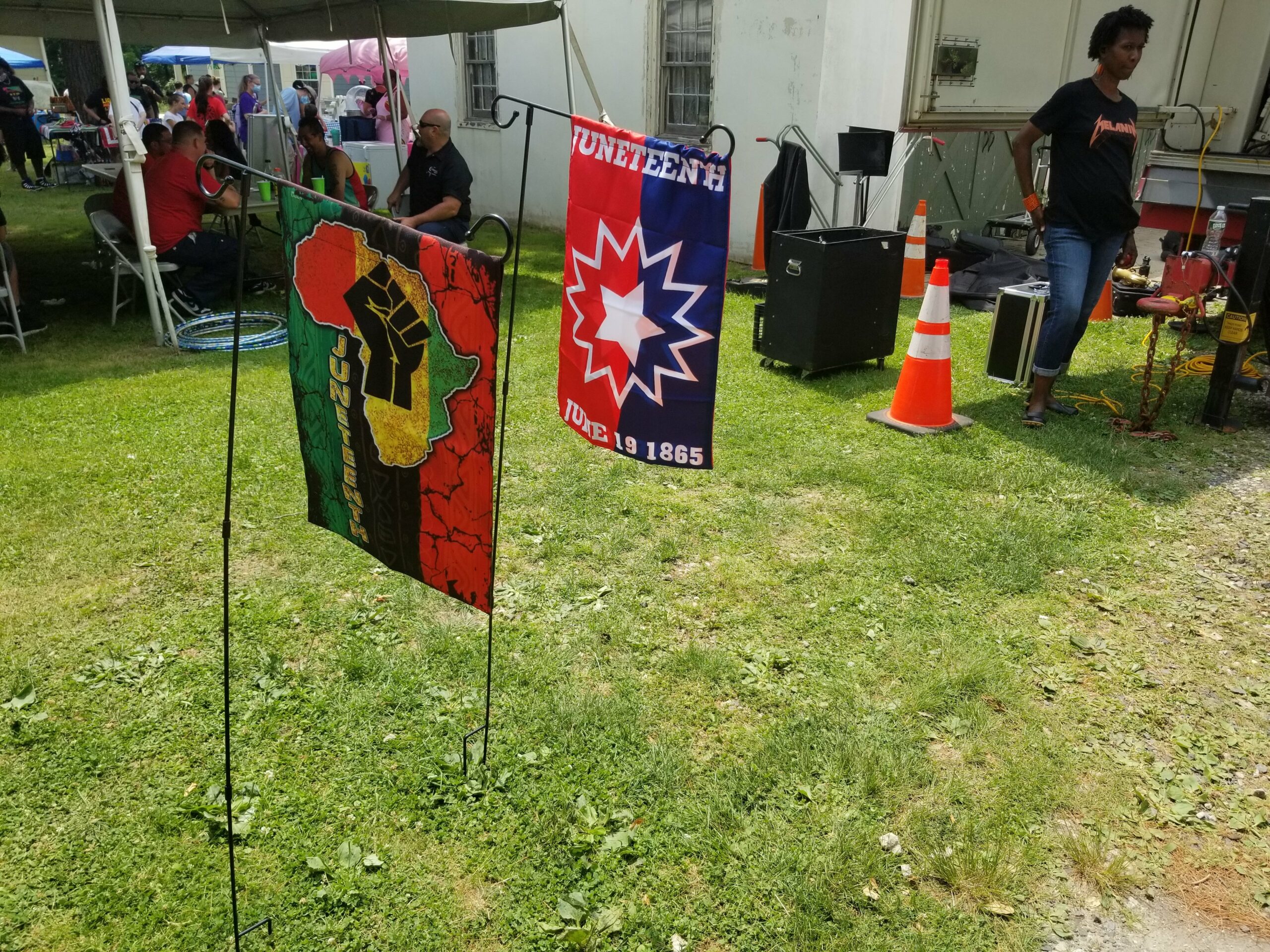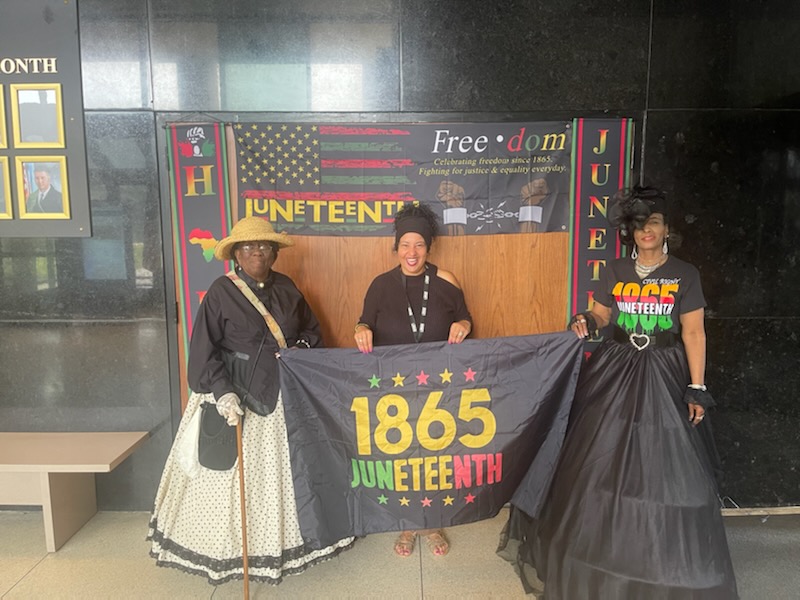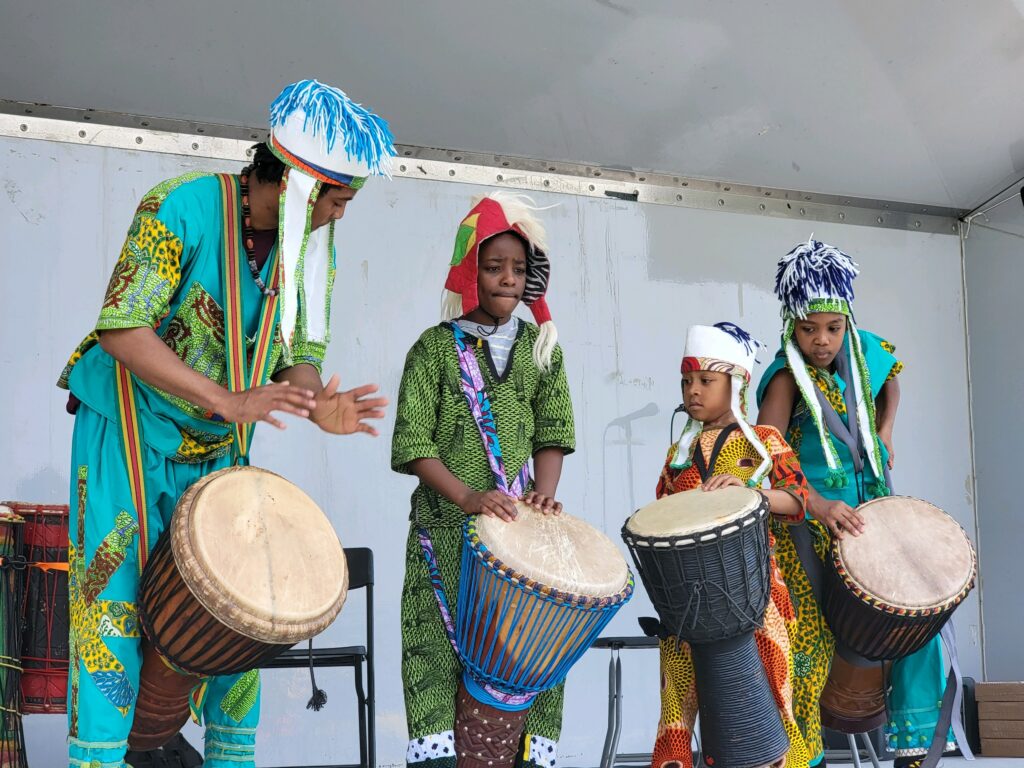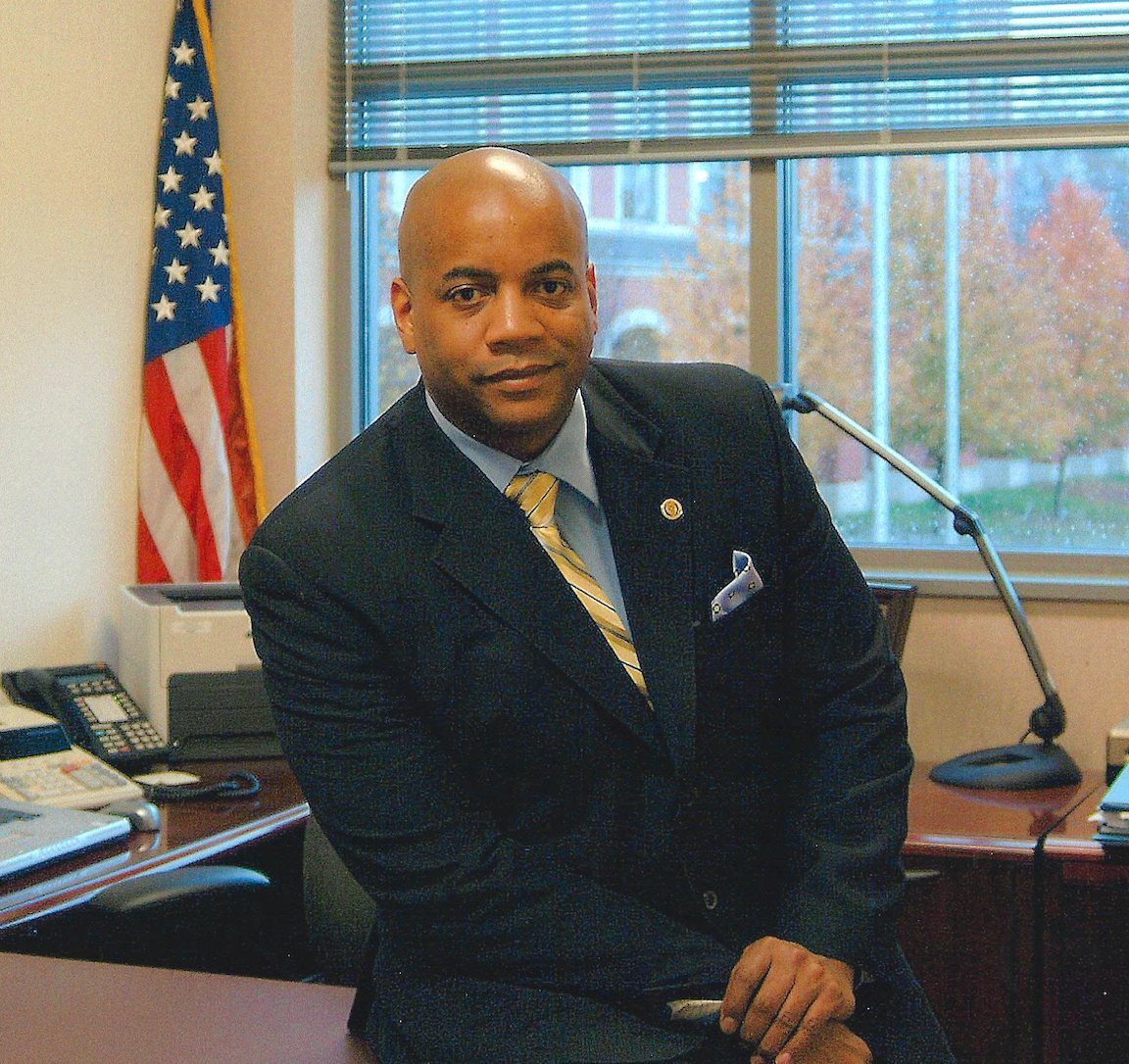Celebrating Juneteenth Through June

Juneteenth flags hanging near the stage at the Cherry Hill African American Civic Association Juneteenth Celebration on Saturday, June 19.
BY CLYDE HUGHES | AC JosepH Media
ATLANTIC CITY — While the National Parks Service calls Juneteenth, recognized on June 19, one of the oldest known commemorations related to the abolition of slavery in the United States, it did not become a national holiday until June 17, 2021.
The death of George Floyd in 2020 and the social justice movement that followed his death became one of the catalysts in getting Juneteenth to be named a federal holiday. In actuality, the Juneteenth holiday movement was already sailing with many states recognizing June 19 as state holidays before President Joe Biden issued his proclamation.
“Juneteenth is a day of profound weight and power,” Biden said in his 2021 proclamation. “A day in which we remember the moral stain and terrible toll of slavery on our country — what I’ve long called ‘America’s original sin.’
“A long legacy of systemic racism, inequality, and inhumanity. But it is a day that also reminds us of our incredible capacity to heal, hope, and emerge from our darkest moments with purpose and resolve.”
Juneteenth celebrates the date of June 19, 1865, when enslaved people of African descent located in Galveston, Texas, finally learned of their freedom from the slavery system with the arrival of Union soldiers on the island.
While freedom was granted through the Emancipation Proclamation signed on January 1, 1863, by President Abraham Lincoln, Texas and other Southern states ignored the proclamation at the dawn of the Civil War and continued to hold Blacks in bondage.

The 1865, the date became a point of private celebration among African descendants, marked by family reunions and picnics, parades and other celebrations. Through the years, Blacks across the country kept the celebration of Juneteenth alive without the holiday designation.
The color red, a ceremonial color recognized by those enslaved from West Africa, has always played a part in the Juneteenth celebration and is a color on the Juneteenth flag marking the holiday.
New Jersey became one of the 28 states that recognized Juneteenth as a state holiday in 2020, via proclamation by Gov. Phil Murphy.
“Commemorating this date is just one component of our collective approach to end a generational cycle of pain and injustice that has gone on for far too long,” Murphy said in 2020 in naming the holiday. “Every Juneteenth, we will celebrate the end of the physical chains which once held Black Americans down.
“While more work lies ahead to undo the oppression that remains, Juneteenth is an important marker that reminds us of our mission to create a society that enables our Black communities to achieve the full equality which they deserve.”
Many communities around South Jersey and throughout the state will celebrate Juneteenth with a wide variety of events. Since June 19 falls in the middle of the week, most of the festivals will be celebrated on the Saturdays before and after the date, on June 15 and the 22.
Opal Lee, often called the grandmother of the Juneteenth movement, spent years walking from Fort Worth, Texas to Washington, D.C. to generate support for getting Juneteenth to become a federal holiday. Texas U.S. Rep. Al Green, who joined her cause, said Juneteenth is an American celebration.
“Juneteenth is not just a holiday for Black people; it is a holiday for all people of goodwill regardless of their hue,” Green said in 2022. “Because Black history is American history, together as Americans we must never forget the era of chattel slavery so we can strive for a society with true equality for all.

“Unfortunately, the vestiges of slavery and invidious discrimination still linger in our nation today, including in housing, education, healthcare, as well as lending. We owe it to our past, present, and future to do well by our promise of justice and liberty for all.”
When the scores of Juneteenth festivals, speeches and celebrations are shared in this month, many supporters will ask: How far we have come as a country and how much farther do we still have to go in dealing with the past and come to true racial healing in the country?
Follow Us Today On:
Note from AC JosepH Media: If you like this story and others posted on Front Runner New Jersey.com, lend us a hand so we can keep producing articles like these for New Jersey and the world to see. Click on SUPPORT FRNJ and make a contribution that will go directly in making more stories like this available. Thank you for reading!





